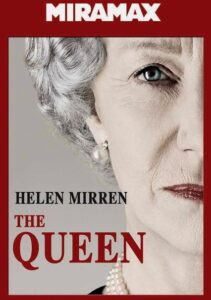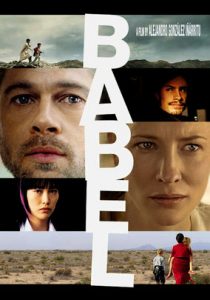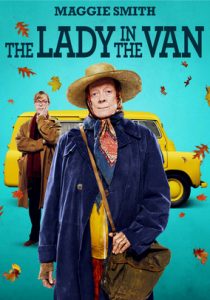The Queen-2006
Director Stephen Frears
Starring Helen Mirren, Michael Sheen
Scott’s Review #1,253
Reviewed May 8, 2022
Grade: A
Before the Netflix series, The Crown (2016-2023), loudly stomped into existence and took the world on a historical journey through the trials and tribulations of British royalty there was The Queen (2006).
Starring Helen Mirren, the film is a quiet telling of the life and times of Queen Elizabeth II, especially immediately after the death of Princess Diana and the conflict and contention that took place.
Ironically, The Crown was created and primarily written by Peter Morgan, who also wrote The Queen. He created The Crown because of The Queen so there is an instant correlation between the two brilliant projects and the handwriting is very similar.
Stephen Frears, who also directed Judi Dench to an Oscar nomination for Philomena (2013) is at the helm and won himself an Oscar nomination for directing as well as scoring a win for Mirren.
The Queen is a terrific film across the board and Mirren is phenomenal in her portrayal of the grand dame. She cleverly fuses stiffness and stoicism with subtle warmth and humanity few see from the queen, at least publicly.
Layers of complexity are provided to an already mysterious public figure.
Following the death of Princess Diana in a fiery auto accident, Great Britain’s Queen Elizabeth II (Mirren) and Prime Minister Tony Blair (Michael Sheen) struggled to reach a compromise on how the royal family should publicly respond to the tragedy.
The family’s need for privacy and the public’s demand for an outward show of mourning are in the balance. This causes mayhem and drama behind the sacred walls of Buckingham Palace.
The acting of Mirren and the direction are what make The Queen pure magic and a standout among the many royalty-themed films to emerge since the beginning of motion pictures.
First of all, Mirren looks like the part of Queen Elizabeth II and this goes way beyond wearing glasses and a sweater or having the same hairdo. She encompasses the role and this is no small feat.
The mannerisms, the speech patterns, and the lowkey attitude are the amazing nuances that the actress can somehow channel.
It feels more than Mirren dressing up like royalty and showing up scene after scene. She does something much more with the unspoken looks and inner workings of the queen that become apparent to the viewer.
Frears chooses to include many closeups of characters, mainly of Mirren, which only encircles what each character is thinking and pondering.
The film is very subdued with a lovely musical score adding texture and appeal to each frame. The inclusion of archival footage is powerful realism.
Merely nine years after the real-life death of the uber-popular Diana the event was still so fresh in the minds of viewers that releasing The Queen at this time was a stroke of genius.
It’s no secret that while Queen Elizabeth II is respected she is worlds away from wildly popular Diana and emits a coolness that baffles the public.
Thanks to Mirren, the public gets a glimpse into the heart and soul of a mysterious person and that’s a good feeling indeed.
However, Mirren couldn’t have delivered fully if not for the talents of Michael Sheen as Prime Minister Tony Blair. Generations apart and with differing views they spar and respect each other, slowly forging a friendship of sorts.
The Queen (2006) hardly needs bombs, bombast, or quick editing to get its point across, though speaking of editing, a fantastic job of it with family scenes of Diana.
The film lures the viewer into its web and makes them feel like an insider amongst the walls of royalty.
Oscar Nominations: 1 win-Best Picture, Best Director-Stephen Frears, Best Actress-Helen Mirren (won), Best Original Screenplay, Best Costume Design, Best Original Score


